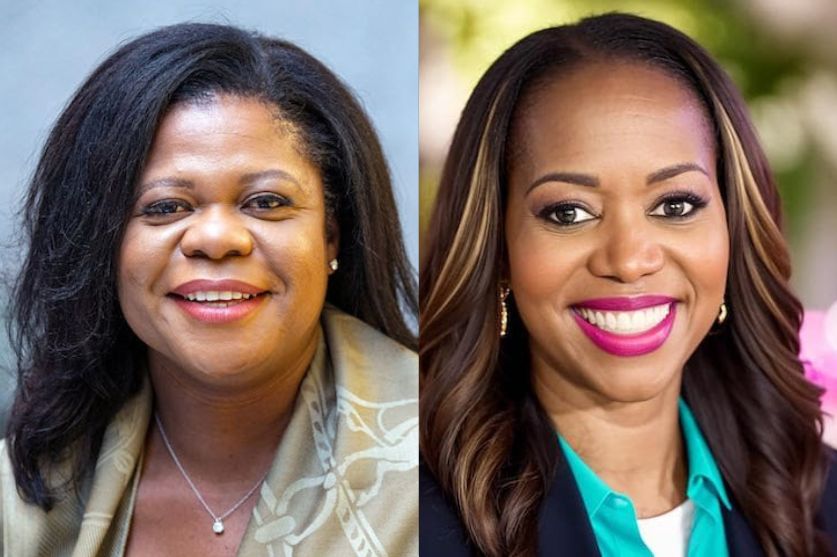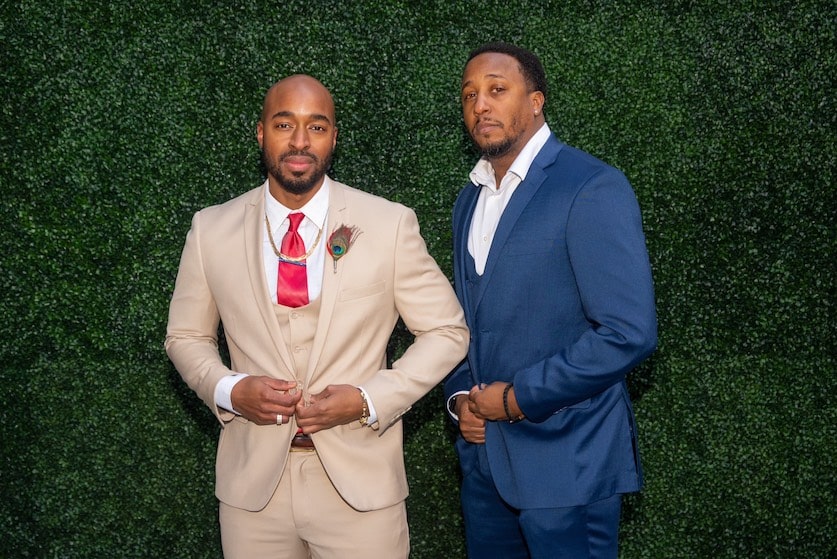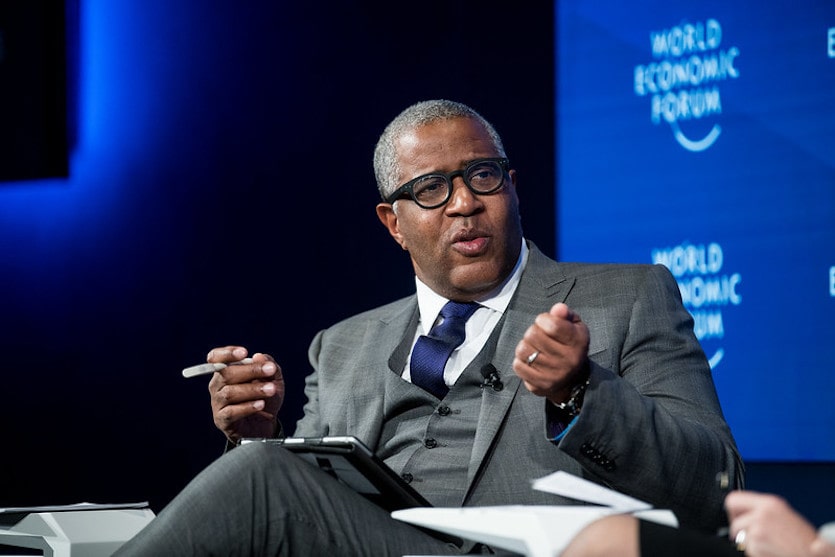
Play in Color: New Campaign to Increase Diversity and Representation in Gaming
March 26, 2024
Frobelles, the UK App Game Celebrating Afro Hair Launches in the US
March 29, 2024Earlier this month, the award-winning documentary OnBoard was released worldwide to coincide with International Women’s Day.
The film follows the story of incredible women who defied the odds and reached the pinnacle of their careers. It chronicles black women in board rooms and the c-suite from pioneer Patricia Roberts Harris’ revolutionary appointment to the board of IBM in 1971 to the present day.
Merline Saintil, co-founder of Black Women on Boards and Rocket Lab lead director, served as co-executive producer to bring this story to the screen. Fortune named her one of the most powerful women in business.
Award-winning filmmaker and Wing’s CFO Shannon Nash also served as Co-Producer. In June 2023, the Silicon Valley Business Journal named Shannon “one of the most influential women in Silicon Valley.”
UrbanGeekz had an exclusive interview with these two incredible women to share their thoughts on making this award-winning documentary.
What specific stories or experiences from the women in “OnBoard” resonated most with you, and why?
Shannon Nash: In addition to highlighting Patricia Roberts Harris’s remarkable journey, ‘OnBoard’ presents the unique narratives of several women, underscoring the rich diversity of paths to corporate boardrooms. These stories vividly demonstrate that there is no single route to achieving such prestigious roles.
Each woman’s journey is distinct—Merline Saintil’s inspiring ascent from a modest upbringing in Haiti to a Fortune 100 board member, Gina Loften’s rise from a single-parent household to similar heights, or Kim Newton’s early exposure to corporate leadership through her father’s career at IBM, paving her way to becoming a Fortune 500 board member.
These narratives collectively emphasize that women are not a monolith; our differences in experiences and backgrounds enrich and diversify leadership landscapes. I hope these stories resonate with young women everywhere, offering them a glimpse of what is possible and inspiring them to reflect on their potential in the varied and successful paths these leaders have carved.
What steps can companies take to foster more opportunities for women in senior leadership?
Shannon Nash: Fostering a culture of inclusion demands genuine and bold leadership from the CEO and the Board for organizations ranging from technology startups to established corporations. The commitment to fostering leadership must resonate from the top echelons, setting a precedent for the entire organization to emulate. Objectives must be intricately woven into the company’s ethos, with clear communication and understanding at all levels.
Moreover, integrating these initiatives with overarching business goals and establishing accountability through measurable outcomes are crucial steps toward engendering lasting transformation. Holding leadership teams accountable for achieving specific DEI metrics underscores the organization’s commitment to these values and propels genuine, sustainable change.
Merline Saintil: I’ve generally found that women are over-mentored and under-sponsored. Acceleration programs are great. Professional development budgets are great. Even more helpful to making progress, though, are having executives who, in a room full of opportunities, will say your name aloud.
That’s a pivotal way to propel more high-potential talent into the top tiers of any organization. So I advise everyone, not just younger Black women, to be sure you’re intentionally building relationships that make that more likely to happen. Be investable. Offer a point of view. Ask yourself: Do I have senior people in my network who will use their social capital to vouch for me?
What message do you hope viewers, mainly young aspiring female leaders, will take away from watching “OnBoard”?
Shannon Nash: I hope ‘OnBoard’ will be a beacon of inspiration and a call to action for aspiring female leaders. This documentary highlights the diverse journeys of women who have broken through the glass ceiling to claim their seats in the boardroom.
Through their stories, viewers will see no single path to leadership success. Whether coming from humble beginnings, navigating through the challenges of a single-parent household, or being inspired by a family member’s corporate achievements, these women have demonstrated resilience, determination, and the power of dreaming big.
I want viewers to understand that their unique backgrounds, experiences, and perspectives are invaluable assets in their leadership journeys. ‘OnBoard’ aims to dispel the myth that there’s a monolithic way to achieve success and highlight diversity’s importance in shaping inclusive and dynamic corporate landscapes.
Most importantly, I hope young women watching ‘OnBoard’ will see their potential and aspirations reflected in these stories. May this film empower them to pursue their ambitions fearlessly, seek mentorship and support, and never underestimate the impact they can make as future leaders. The path to the boardroom is paved with challenges, but it is also filled with opportunities for growth, learning, and profound satisfaction in contributing to positive change.
Merline Saintil: When looking at the news or reflecting on one’s own experience, it’s natural to note headwinds and maybe feel discouraged – especially when you sense a pendulum swinging in a less favorable direction. But here’s the thing: There always have been and always will be headwinds.
Resist any inclination to view yourself as a disadvantage or victim of larger forces. Instead, think of the superpowers you bring, the value you can add, and trailblazers like Patrica Roberts Harris. Despite tremendous odds, she was the first Black woman to achieve many things, including serving on a Fortune 500 public board of directors. You’re standing on her shoulders. Make her proud.
The film focuses on corporate America. Do you see the themes of lack of diversity and unconscious bias translating to other industries and sectors?
Shannon Nash: The themes of lack of diversity and unconscious bias highlighted in OnBoard are not confined to corporate America but are pervasive across various industries and sectors globally. These challenges manifest differently in technology, healthcare, academia, government, or the nonprofit sector and impact decision-making, innovation, and equity within these spaces.
OnBoard underscores the necessity for deliberate and sustained efforts to address these issues. The lack of diversity and unconscious bias can stifle creativity, hinder productivity, and perpetuate inequality, regardless of the industry. The film serves as a critical reminder that fostering inclusive environments and actively combating bias are not just moral imperatives but strategic business ones.
By bringing these issues to the forefront in the context of corporate boardrooms, OnBoard sparks a conversation that is relevant across all fields. The call to action is clear: to create more equitable and dynamic spaces, we must embrace diversity in thought, background, and experience. This endeavor requires commitment from the top down and bottom up, advocating for systemic changes that universally promote diversity, equity, and inclusion.
I hope that OnBoard inspires viewers from all industries and sectors to reflect on their roles and the steps they can take to champion change within their worlds. Diversity and inclusion are fundamental to driving progress and innovation in any industry, making pursuing these values a question of fairness, excellence, and competitiveness.
How can increasing the representation of women in leadership roles benefit companies and society as a whole?
Shannon Nash: I’m a steadfast advocate for increasing the representation of women in corporate leadership roles and on boards, as it holds substantial benefits for both companies and society at large. Enhancing diversity within leadership fosters better decision-making by incorporating a more comprehensive range of perspectives and correlates with improved financial performance and a more comprehensive leadership vision.
This commitment to diversity sets a powerful precedent throughout the organization, leading to heightened employee morale. By fostering a sense of belonging and recognition, such an environment naturally enhances retention rates among women and minorities. The positive impacts extend beyond internal metrics; they influence societal norms and expectations about leadership and equality.
The evidence supporting the benefits of diversity in leadership is compelling and abundant. For instance, a McKinsey report highlighted that companies with high diversity levels are 33% more likely to outperform their less diverse counterparts regarding financial returns. As a CFO, I can see the correlations between diversity, company performance, and shareholder value.
Yet, despite this clear evidence, DEI initiatives often face scrutiny and demand further justification. What more proof is needed? The data speaks volumes, underscoring the necessity for action rather than continued debate. It’s time to move beyond requiring further evidence and focus on implementing strategies that harness the proven benefits of diversity in leadership for the advancement of companies and the broader society.
Merline Saintil: If you talk to any CEO or look at any balance sheet, now or over the past several decades, three things fuel growth more than any other—innovation, Culture, and Human Capital. Those same things are the business case for why more outstanding representation matters throughout any organization. Pair that with the importance of “lifting as we climb,” you’ll have a winning formula to drive more impact and considerable outcomes.
As filmmakers, what challenges did you encounter while making this documentary, and how did you overcome them?
Merline Saintil: Making a film during a pandemic is a case study in and of itself! You can imagine the logistical, safety, and creative challenges. But we met the moment by applying what we do in our day jobs as tech executives and board advisors – moving fast, thinking big, and elevating others so that unheard voices and hidden figures suddenly were heard and seen. Of course, most importantly, we didn’t do this alone. We had an army of deeply committed women and men working on this. We’re so grateful to all who participated and made it possible to share this story with the world.
You can access the film here.








